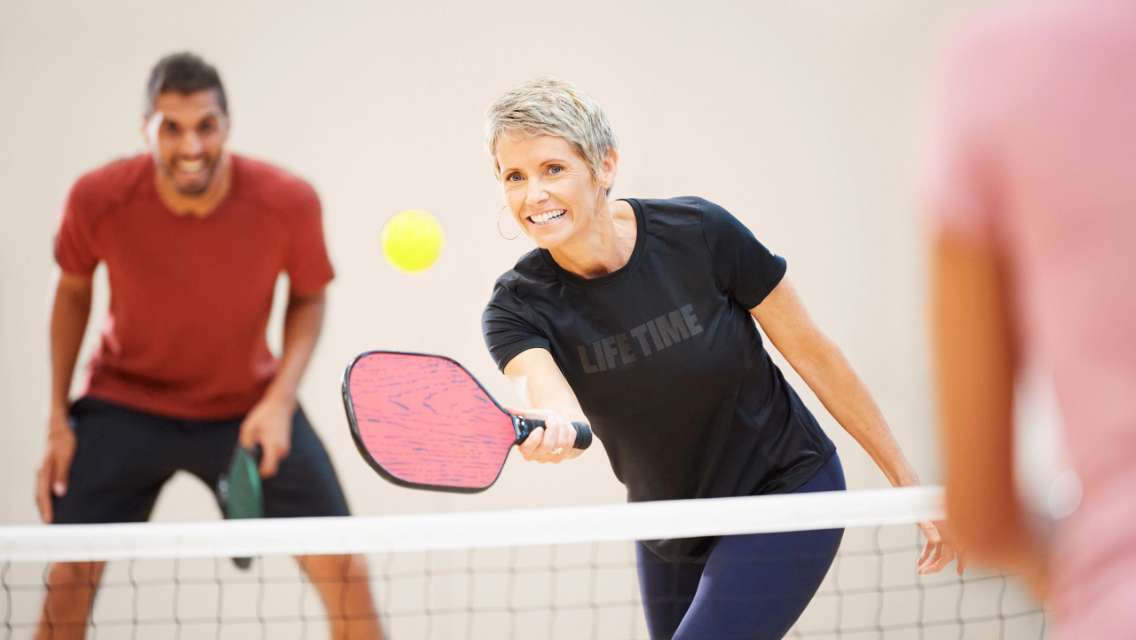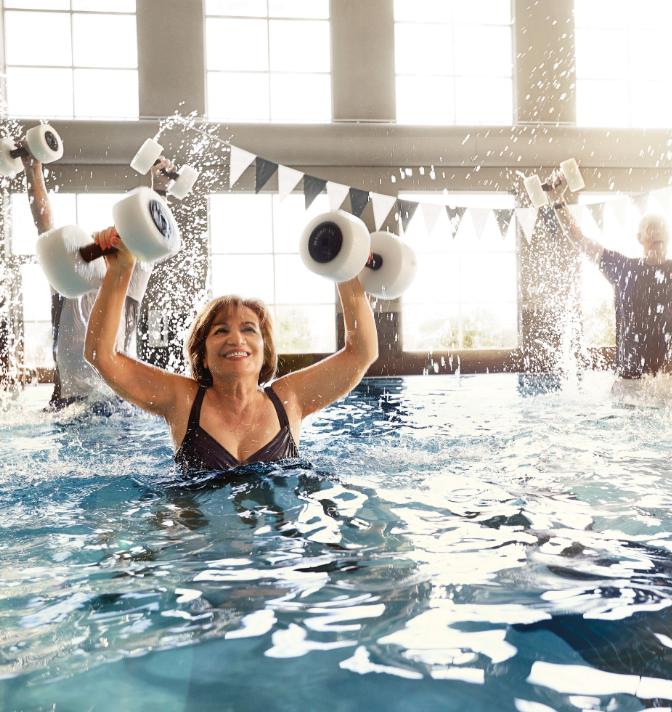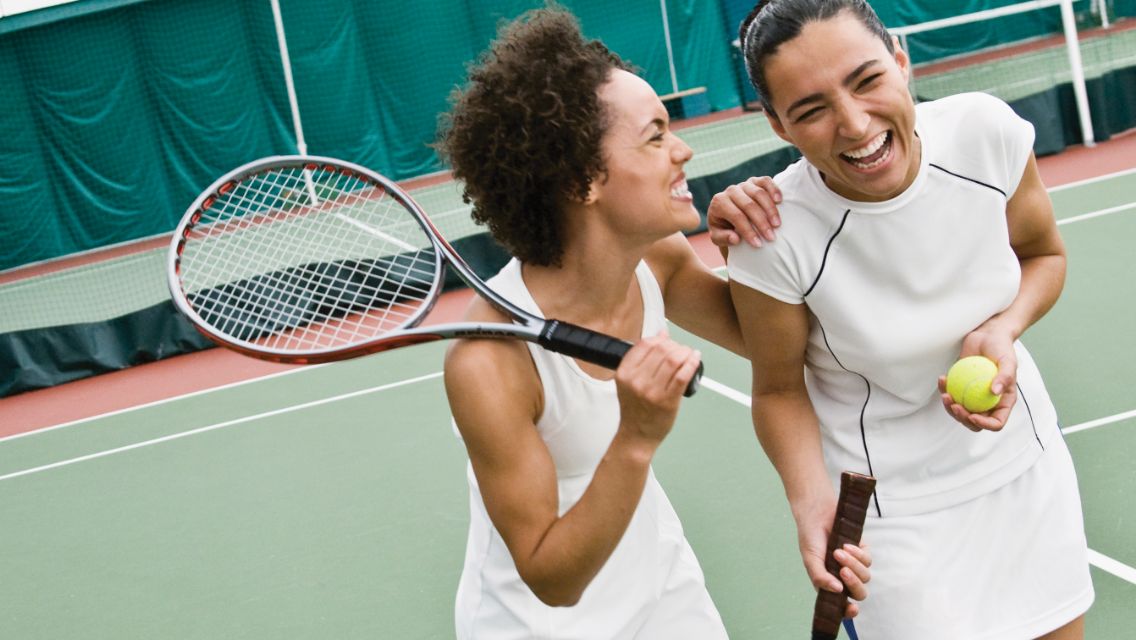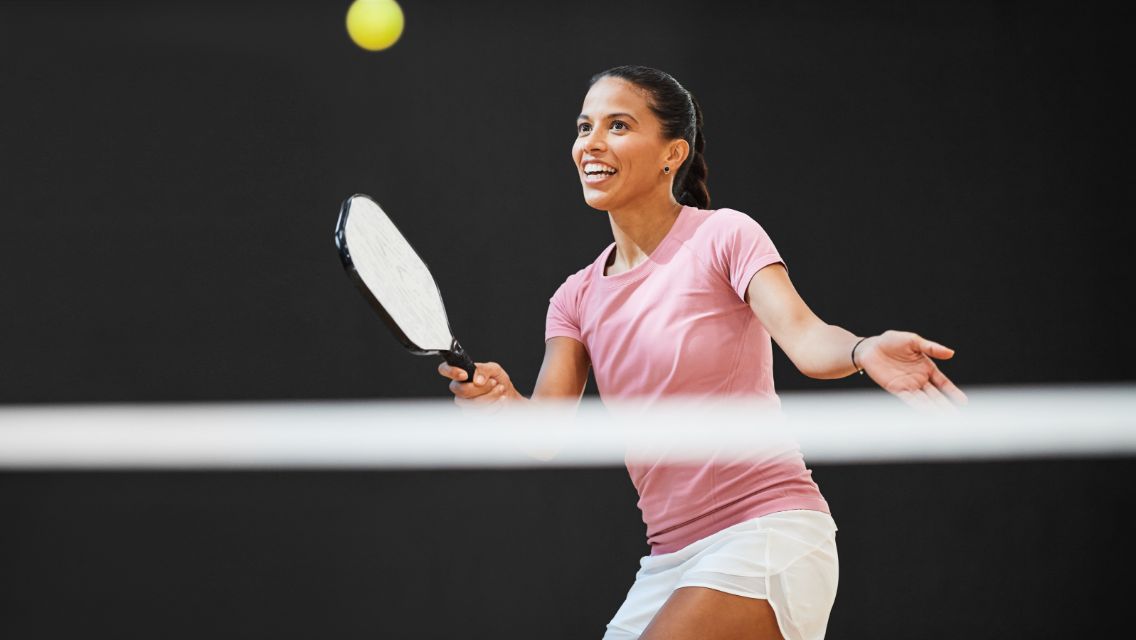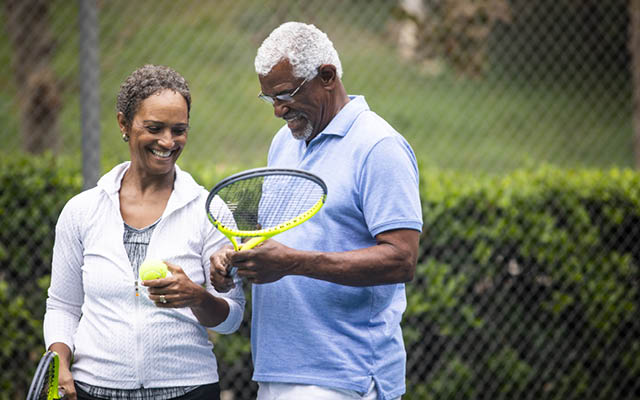Kids are often encouraged to try new things, especially recreational activities and team sports. The benefits they stand to gain are innumerable — but these advantages don’t go away once we get older.
“There’s a myth that sports careers end after high school for most people,” says Alan Arlt, senior director for basketball operations at Life Time. “In reality, the vast majority of people don’t reach their physical peak until their 20s or 30s — and there’s no reason to stop playing as we continue to age.”
“Playing recreational sports as an adult is just as relevant and gratifying as it was to play as a kid,” Arlt continues. “Sports deliver everything from your recommended daily exercise to the opportunity to socialize with like-minded people, and it revives a sense of goal-setting and competition. It’s never too late to get into the game!”
These are just a few of the body-and-mind perks of staying in the game for life.
Regular exercise
One of the most straightforward benefits of sports as an adult is simply that you’re engaging in consistent physical activity. This type of fitness is especially beneficial for those who don’t enjoy exercise or are looking to supplement solitary endeavors such as running or more formulated health club workouts. Participating in a sport you enjoy is a great way to get motivated and exercise regularly while having fun.
And it’s not just cardiovascular benefits. Depending on the sport you’re playing, the different movements you perform can work muscles throughout your entire body. “When you look at the different variables for working out — upper body, lower body, muscles big and small — racquet sports, for instance, will work everything all in one,” says Ajay Pant, senior director of racquet sports for Life Time.
Mental and psychological support
Playing sports not only requires you to move your body, but your brain is also constantly working — especially in fast-moving sports such as tennis, basketball, or soccer. You must continually create and revise your strategy as the ball moves through every single play.
“Racquet sports can be a metaphor for the ups and downs of your everyday life,” says Pant. “There’s no coaching or timeouts and you’re always oscillating between a great point and a lousy point. You train the brain to make decisions at a great speed, which can help you handle the pressure of decision making in any situation.”
“Playing sports is fun and goes a long way toward stress management — which we all need in today’s world,” says Arlt. “Recreational sports allow you to reap all these physical and mental benefits at any age.”
Better balance
“As we age, one of the first things to go is our balance,” says Pant. “Sports, especially racquet sports, are terrific for balance. The more you play and get used to how your body feels in space and certain positions, the higher your balancing abilities can be.”
Increased balance can help prevent falls and reduce your risk for lower-body injuries, including common knee and ankle ailments. (If balance is something you’re looking to work on, consider trying these tips and exercises as well.)
Social interaction
As you get older and more set into an established routine, it can be harder to make new social connections. Joining a sport or playing on a team provides an opportunity to meet people you normally wouldn’t and can make working out feel like a fun activity instead of an obligation.
Plus, research shows that participating in communal sports may help longevity.
Getting Started
Whether you want to try something new or are picking up a sport from where you left off in your youth, be patient with yourself and start slow.
“Don’t play the sport to get in shape. Get in shape to play the sport,” Pant advises. “If you’re just starting out or coming off a long break, don’t just pick up your equipment and begin playing. That’s how you’ll get hurt. Consider the muscles you’ll be using for your sport and focus on strengthening those areas first.”
“You need to learn the fundamentals to truly enjoy the sport and improve at a faster rate,” Arlt adds. “If possible, start working with a trainer who can get you up to speed quickly and can serve as your No. 1 fan along your journey, both physically and mentally.”
Preventing Injuries
Although playing sports offers many benefits, there is also the possibility for injury. By taking the right precautions and making recovery a priority in your regimen, you can greatly reduce those risk factors.
“Continue to strength train on days when you’re not playing your sport,” Arlt encourages. “Building a strong core can help counter the load that sports movement places on your body.”
“Create a consistent recovery routine,” he adds. “This can be as simple as a 15-minute stretch post-game. A more comprehensive recovery program might leverage percussion massage tools, foam rolling, cold tubs, or compression recovery garments. Talk to a trainer or fitness professional to find what works best for your body.”
Choosing Your Sport
There’s no right or wrong sport to play as an adult. Start by considering the sports you’ve previously enjoy and anything that’s of interest. “Don’t assume you won’t enjoy a sport simply because you’re not familiar with it,” says Arlt.
The following sports are likely to be available at your local health club or through community organizations.
Tennis
People of all ages and abilities play tennis and the sport only continues to increase in popularity. “Tennis participation is growing in America due in large part to people learning how healthy it can be,” says Pant. “It’s never too late to learn how to play.”
Looking for more reasons to play? Read up on nine health benefits of tennis here.
Pickleball
Part tennis, part badminton, part ping pong — and everyone is playing it. Pickleball has become increasingly popular over the last five years, with participation growing more than 21 percent in the last year alone.
Pickleball’s rise is in part due to ease of play and a short learning curve. The court space is condensed, and you use a ball that travels slower compared to other racquet sports.
Learn more about pickleball and ways to get involved here.
Basketball
Whether you want to work on your skills, improve your fitness, or play pickup games for fun, basketball offers it all. You can find teams and leagues that meet regularly for games or tournaments — or casually shoot hoops on your own or with a buddy.
Swimming
Water is well-known for its rejuvenating powers — and research shows that swimming regularly can delay symptoms of aging. The light resistance from the water creates a great low-impact workout that doesn’t put stress on your joints. Plus, swimming can be done with a team or on your own. It’s all about your preferences.
